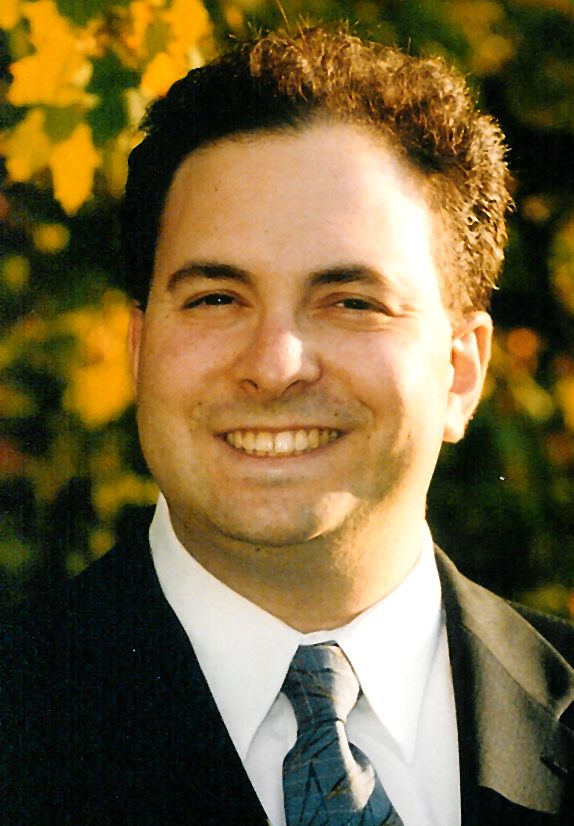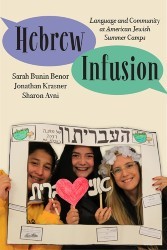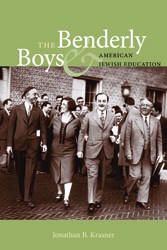Earlier this week, National Jewish Book Award winner Jonathan Krasner discussed his use of the word “boys” in “Benderly boys.” He will be blogging here all week for Jewish Book Council and MyJewishLearning.
 When my ten year old daughter heads to sleep-away camp this summer she will follow a family tradition that began the summer after World War II. Fearing an outbreak of polio in New York City, my grandparents shipped my father off to Massad, a Hebrew-speaking camp in the Poconos. He was only five years old. My grandmother kept the postcards he mailed home. My dad was just learning to print and his penmanship was atrocious. Still, they weren’t difficult to decipher, and all were virtually identical: “I don’t like it here,” his postcards wailed. “Take me home!”
When my ten year old daughter heads to sleep-away camp this summer she will follow a family tradition that began the summer after World War II. Fearing an outbreak of polio in New York City, my grandparents shipped my father off to Massad, a Hebrew-speaking camp in the Poconos. He was only five years old. My grandmother kept the postcards he mailed home. My dad was just learning to print and his penmanship was atrocious. Still, they weren’t difficult to decipher, and all were virtually identical: “I don’t like it here,” his postcards wailed. “Take me home!”As a former camp counselor I know that dad’s homesickness was hardly anomalous. But by-and-large, his peers who attended Jewish overnight camps have very fond memories of their summers. Dr. Josh Perelman, the deputy Director of Programming and Museum Historian at the National Museum of American Jewish History recently told me that the section of the museum’s permanent exhibit dedicated to summer camping is easily one of the biggest draws. A section of the museum’s website is devoted to Jewish summer camps and guests are invited to upload their own camp photos and share memories.
When I was researching the origins of Jewish culture camping for The Benderly Boys I was struck by the central role that overnight camps played in the Jewish identity formation of my informants. Decades after the closure of Cejwin Camps, the oldest Jewish culture camp, hundreds of alumni remain connected through an online discussion group and social media. A Camp Massad Facebook group has almost 600 participants. Another venerable overnight camp, Modin, which still thrives in Belgrade, Maine, recently held a 90th anniversary reunion gala at a swanky Manhattan venue with over 500 former campers in attendance. And a 1998 reunion of the oldest Yiddish-speaking camp, Boiberik, drew 450 alums and merited an article in the New York Times.
I suppose my father’s memories of camp were not all bad. The summer I turned ten, he and my mom signed me up for a month at Camp Massad. I spent three glorious seasons at Massad Bet and would have returned. But dwindling enrollment compelled the camp to close, in 1979, the same year that the Boiberik campgrounds, in Rhinebeck, New York, was sold to a meditation center. Cejwin, which paved the way for camps like Massad, was shuttered a little over a decade later, in 1991.
Various reasons have been given for these camps’ decline. My guess is that the phenomenon can largely be explained by their failure to keep pace with the rapid socio-economic advancement of the Jewish community. As much as I loved Massad, the truth is that the camp facilities were terribly outdated by the 1970s. I doubt that they were ever in mint condition. But whereas an earlier generation was willing to write off overgrown playing fields, dilapidated communal shower houses and leeches in the lake as symptomatic of the camp’s rugged charms, such blemishes could not be overlooked by middle class kids thoroughly acclimated to the creature comforts of suburbia. Certainly not when there were other well-manicured, flashier alternatives competing for the same clientele.
Moreover, the ideological core of these camps — their devotion to Zionism, Hebrew or Yiddish language and culture — did not tug as deeply at the heartstrings of the third generation. By and large, their parents left their immigrant ideologies in Brownsville and Roxbury when they moved to Great Neck and Newton.
My hypothesis is borne out by the opposing fates of Cejwin and Modin. Established within a few years of one another (1919 and 1922, respectively) and sharing some of the same founders, the former catered to a working class clientele and placed Jewish culture front and center, while the latter attracted the children of professionals and businessmen, enticing them with bourgeois activities like horseback riding and (later) waterskiing. In the 1940s and 50s, Cejwin was teeming with campers and seemed to be in permanent expansion mode. But in the long run, Modin’s formula had greater longevity. The same summer that Cejwin closed, the current owners of Modin relocated their high end camp to a first class facility on the picturesque Belgrade Lakes with a state-of-the-art fitness center and recreation pavilion. The 2011 brochure features panoramic views and happy children of privilege, sailing, windsurfing, white water rafting and wall climbing.
Even Orthodox Judaism had gone bourgeois by the 1970s. In the 1980s I worked at Camp Raleigh, the “sports camp in a Torah environment.” Raleigh boasted private showers in each bunk, a gleaming swimming pool, and a pastry chef who’s creations could rival anything one might find at the nearby Grossinger’s resort hotel. A colleague and fellow member of the Massad Diaspora mockingly referred to Raleigh as “Camp Fress,” from the Yiddish word for pigging out. But camps like Raleigh and Seneca Lake embodied the American Jewish zeitgeist of the late twentieth century, the Age of Fress.
Twenty years later, there is a new trend in Jewish camping: the boutique or niche camp. In 2010, the Foundation for Jewish Camp created a camp incubator that facilitated the launching of five non-profit specialty camps, with names like Adamah Adventures and 92Y Passport NYC. The incubator experiment was so successful that plans for a second incubator are well underway. According to the American Camp Association, the Jewish interest in specialty camps mirrors a larger trend in American camping. Rabbi Eve Rudin, a veteran Reform Jewish camp leader and former Director of the Department of Camp Excellence and Advancement at the Foundation for Jewish Camp is positively bullish on the new specialty camps: “Before specialty camps, young people had to chose between their area of interest and their Jewish interests. Too often, they chose to opt out of the Jewish community in order the gain the skills and mentoring they desired. In these new settings, young people can lead Jewish lives, have Jewish experiences and still receive the sophisticated training and opportunities in their areas of interest.”
Individual Jewish summer camps may come and go and the trappings and programs of these camps may adapt to changing times. But the idea of Jewish camping is as fresh and as full of promise for Jewish identity building and personal growth today as it was when the first Jewish culture camps were founded almost a century ago. My daughter will be attending one of the new specialty camps, Eden Village, a religiously pluralistic camp in Putnam Valley, New York, focusing on Jewish environmentalism and organic farming. Like her counterparts twenty, fifty and ninety years ago, she is breathlessly counting the days until summer.
Jonathan Krasner is the Jack, Joseph, and Morton Mandel Associate Professor of Jewish Education Research at Brandeis University. A finalist for the Sami Rohr Prize in Jewish Literature, he is also a two-time National Jewish Book Award winner for The Benderly Boys and American Jewish Education (2011) and Hebrew Infusion: Language and Community at American Jewish Summer Camps (2020).



